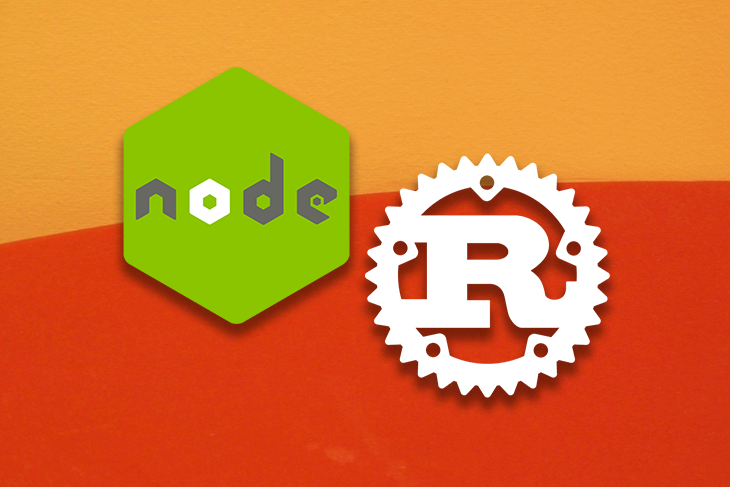- Published on
Building a High-Performance Node.js Implementation in Rust
- Authors

- Name
- Adil ABBADI
Introduction
The Node.js ecosystem has long been dominated by JavaScript, but with the rise of Rust, developers are exploring new possibilities for building fast, reliable, and maintainable software. In this article, we'll delve into the world of Rust and explore how to create a high-performance RPC implementation in Rust that can seamlessly interact with Node.js.

- Understanding RPC in Node.js
- Building the Rust RPC Server
- Implementing RPC Serialization and Deserialization`
- Integrating with Node.js
- Conclusion
- Further Reading
Understanding RPC in Node.js
Before we dive into the implementation, let's cover the basics of RPC in Node.js. RPC (Remote Procedure Call) allows different systems to communicate with each other, enabling services to be built on top of each other. Node.js provides an excellent foundation for building RPC-based systems due to its event-driven, non-blocking I/O model.
Node.js RPC implementations typically rely on TCP or HTTP as the underlying transport protocol. However, for our Rust implementation, we'll focus on TCP-based RPC.
Building the Rust RPC Server
In this section, we'll create a Rust RPC server using the popular Tokio framework. We'll start by creating a new Rust project using Cargo:
cargo new rust-rpc-server
Next, add the required dependencies to your Cargo.toml file:
[dependencies]
tokio = { version = "1", features = ["full"] }
serde = { version = "1", features = ["derive"] }
Now, create a main.rs file and add the following code to set up a basic Tokio server:
use tokio::prelude::*;
use tokio::net::Listener;
#[tokio::main]
async fn main() -> Result<(), std::io::Error> {
let listener = Listener::bind("127.0.0.1:8080").await?;
println!("RPC server listening on 0.0.0.0:8080");
loop {
let (mut socket, _) = listener.accept().await?;
tokio::spawn(async move {
handle_rpc_request(socket).await?;
Ok(())
});
}
}
async fn handle_rpc_request(socket: tokio::net::TcpStream) -> Result<(), std::io::Error> {
// RPC request handling logic goes here
Ok(())
}
This code sets up a Tokio server that listens for incoming TCP connections on port 8080. When a connection is established, it spawns a new task to handle the RPC request.
Implementing RPC Serialization and Deserialization`
To enable seamless communication between Node.js and Rust, we need to implement serialization and deserialization` for our RPC requests and responses. We'll use the popular Serde library to achieve this.
Add the following code to your main.rs file to implement serialization and deserialization`:
use serde::{Serialize, Deserialize};
#[derive(Serialize, Deserialize)]
struct RpcRequest {
method: String,
args: Vec<String>,
}
#[derive(Serialize, Deserialize)]
struct RpcResponse {
result: String,
error: Option<String>,
}
async fn handle_rpc_request(socket: tokio::net::TcpStream) -> Result<(), std::io::Error> {
let mut buffer = [0; 1024];
let n = socket.read(&mut buffer).await?;
let rpc_request: RpcRequest = serde_json::from_slice(&buffer[..n])?;
// RPC request handling logic goes here
let rpc_response = RpcResponse {
result: "Hello from Rust!".to_string(),
error: None,
};
let response_json = serde_json::write_all(&mut socket, &rpc_response)?;
Ok(())
}
This code defines RpcRequest and RpcResponse structs, which will be used for serializing and deserializing RPC requests and responses.
Integrating with Node.js
To integrate our Rust RPC server with a Node.js client, we'll use the net module in Node.js to establish a TCP connection to our Rust server.
Create a new Node.js file, index.js, and add the following code:
const net = require('net');
const client = new net.Socket));
client.connect(8080', 'localhost', () => {
console.log('Connected to Rust RPC server');
const rpcRequest = {
method: 'greet',
args: ['Alice'],
};
const requestJson = JSON.stringify(rpcRequest);
client.write(requestJson);
client.on('data', (response) => {
const rpcResponse = JSON.parse(response);
console.log(`Received RPC response: ${rpcResponse.result}`);
client.destroy();
});
});
This code establishes a TCP connection to our Rust RPC server and sends a greet RPC request with an argument 'Alice'. The response from the Rust server is then parsed and printed to the console.
Conclusion
In this article, we explored the process of building a high-performance Node.js RPC implementation in Rust. By leveraging Rust's performance and safety features, we can create robust and reliable RPC-based systems that seamlessly interact with Node.js.
The possibilities for interop between Rust and Node.js are vast, and this article has only scratched the surface. As you continue to explore the world of Rust and Node.js, remember to push the boundaries of what's possible.
Further Reading
Happy coding!
